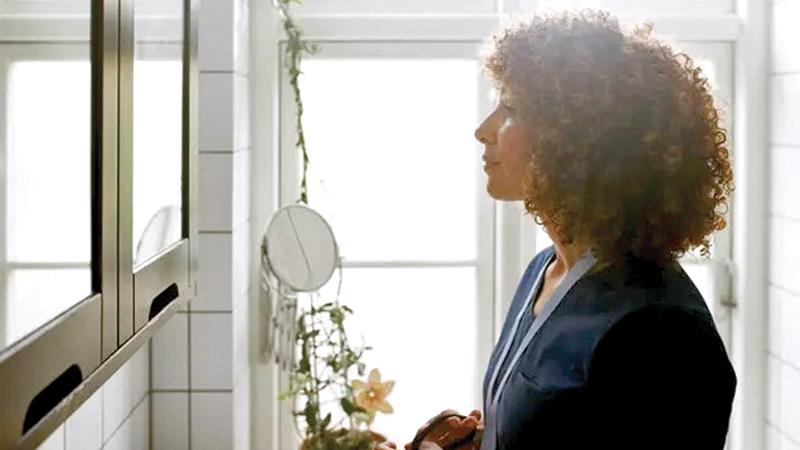
Mass disruption has caused many to rethink what they want out of life and consider changes from prioritising mental health to reshaping their identity
“Every disruption is a point of potential growth,” says associate professor Terry Bowles of the University of Melbourne. And we have experienced quite a period of disruption.
Unprecedented change overwhelmed us in 2020 and 2021. Enduring the Covid pandemic has meant living through drastic adjustments to social and professional environments, an intense restriction of movement and choice, and prolonged bouts of social distancing and isolation.
“What this disruption does is pressure us to make decisions we otherwise wouldn’t make,” Bowles says. Covid 19 has “literally made us step up” to make changes in our lives that are “quite radical”.
Guardian Australia asked readers to share how the pandemic made them rethink their life. Alongside more than 100 reader responses, leading experts on mental health and wellbeing say Covid has transformed people’s sense of self, and the way wellbeing, priorities and identity are being though about.
Experiencing major change that makes us reassess our sense of self is “part of normal life”, says Dr Amy Dawel, a clinical psychologist and senior lecturer at the Australian National University’s College of Health and Medicine.
“From divorce to a major move, having children or starting a new job – they are usually personal disruptions that make you reassess parts of your life and identity,” Dawel says.
What is unusual about the disruption of the past two years, she says, is that it has been “forced upon us” on a mass scale.
“There is less autonomy, and a much greater sense of uncertainty.”
At first, Australians felt “distant” from and “unaffected” by the Covid pandemic, Bowles says. “Unfortunately, that slowly changed”
Now, almost two years on, a widespread social disruption caused by Covid still permeates with “elements of distress at a universal level”. Skewing lives socially, professionally and financially, adapting with Covid “grinds people down to fatigue and distress”, Bowles says.
“And it has prompted changes that have altered entire identities.”
Such involuntary change and loss of control has a “massive impact” on wellbeing, says Prof Nicolas Cherbuin, head of the Australian National University’s Centre for Research on Ageing, Health and Wellbeing. “When a person has a sense they can control their lives, they tend to flourish more. And what we experienced with Covid was a generalised loss of control.
“We were told to go home, to change the way you socialise, change the way you work.”
Simultaneously, “the way a person defines themselves” with markers of identity – such as roles in a family, workplace or community group – were upended. Some academics have observed this as “social role disruption”, alongside the more general disruption in society.
“This all has a major impact on our agency, and who we think we are,” Prof, Cherbuin says.
Suddenly, one’s perception of self is very different, Dawel says. “Changing dramatically the context we are living in changes the way we fit in it.”
Bowles says that while some adjust quickly, others will need “serious support”. However, amid the disruption has come the potential for personal development. In an attempt to regain agency, Bowles says, “people have been adapting”, albeit at varying rates.
A discontent during Covid times has encouraged people to “reflect on what they want out of life, study, retirement”, Bowles says. “People will ask themselves a lot of questions about values. We will ask ourselves why we do things.”
Cherbuin calls it a mass redirection of priorities.
Many responses from Guardian Australia readers reflected Cherbuin’s observation that people are quitting jobs and reassessing work, “because they realise their work habits are unsustainable”.
Various other themes emerged as well. Popularly, realisations about relationships.
Some readers wrote of new appreciation for social connections. “I don’t need a lot of stuff to be happy, but I do need connection to people,” one said.
Others wrote of “reassessing” whether certain relationships are “worth it”. Many shared the experience of ending a long-term relationship or marriage in the midst of Covid. For one reader, following the end of their marriage, “lockdowns actually gave me pace to process this, reclaim my home and heal”.
Cherbuin says that, similarly, lifestyles have been reassessed and “people have taken up new activities”. Many respondents wrote of learning to bake, growing a vegetable garden, starting yoga and and getting into running.
For many, during the last years of disruption, personal health became a bigger focus. Studies by the Alcohol and Drug Foundation, for instance, suggest 23% of Australians started to exercise more and 25% fit in more hours sleep. As well, 13.9% of people said they increased alcohol consumption during lockdowns in 2020, while slightly more (14.7%) said they were drinking less.
Readers reflected this mix but shared healthier habits, such as reducing alcohol consumption or stopping smoking during Covid, with one respondent writing: “I no longer want to go to events where drinking alcohol is the main activity.”
The rethinking of priorities, and the logistical opportunity for white-collar workers in particular to not need to live near their workplaces, prompted the biggest migration from cities to the regions in Australia’s history. Considering relocation, particularly to areas outside the boundaries of a city, was another lifestyle change considered by some readers for whom cities had begun to lose appeal. -Guardian
